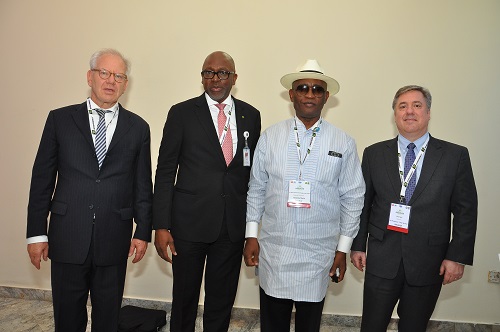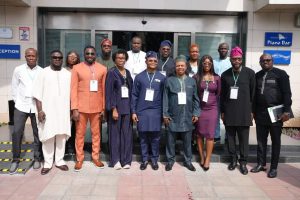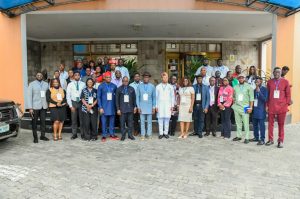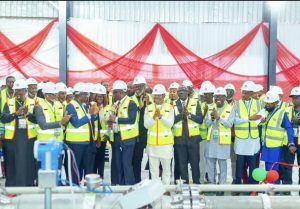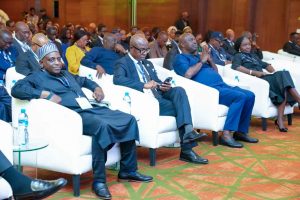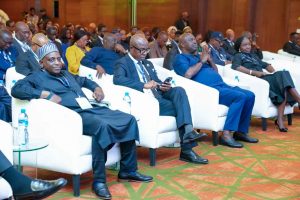…$300m FPSO facility to be completed at LADOL in 2017
Successes recorded in the implementation of Nigerian Content Act in the last five years have ensured that jobs and funds from the Nigerian oil and gas industry are no longer exported but retained in the country, the Executive Secretary, Nigerian Content Development and Monitoring Board (NCDMB), Mr. Denzil Kentebe has said. Speaking at the Practical Nigerian Content Conference held recently in Yenagoa, Bayelsa State, the Executive Secretary credited this change to the increased capacity to execute oil and gas jobs and services in-country and indigenous oil and gas companies with capacity to deliver high-end services.
According to him, the implementation process has transformed the oil and gas industry from a sector that depended on foreign inputs to one that develops and utilises local human & material resources and indigenously owned assets. He said “the Board’s interventions on compliance have increased participation of Nigerians in oil and gas contracts from less than 10 per cent to over 80 per cent. We now have a new class of indigenous entrepreneurs carrying out businesses that were hitherto done abroad. “Prior to the enactment of the NOGICD Act, Nigerian indigenous companies were producing just three per cent of Nigeria’s oil and gas. Now Nigerian indigenous companies are producing close to 10 per cent of production output. With recent divestments and deliberate local content requirements, indigenous producers are set to achieve the target of 30 per cent contribution to production output by 2020.”
Kentebe who stated the Board’s preparedness to galvanise the industry towards local construction, repairs & maintenance of marine vessels and rigs, announced that Nigerian built vessel be given first consideration in tenders along with Nigerian owned vessels from 2016. “Our intervention will see to the development of a thriving ship-building industry with all the benefits in job creation, retention of revenue and technology acquisition,” he said.
Speaking further, the Executive Secretary indicated that an integration yard for floating, production, storage and offloading (FPSO) vessels was being constructed at the Lagos Deep Water and Logistics Base (LADOL), noting that the investment worth 300 million dollars will be completed in early 2017. He stressed that the investment was coming after over 50 years of oil discovery in Nigeria and over 14 Floating, Production, Storage and Offloading (FPSOs) had been built for the Nigerian oil and gas industry in foreign yards. The FPSO yard will ensure that all future FPSO integration scopes will be carried out in Nigeria, thus employing over 100,000 Nigerians directly and indirectly, he added.
Expounding on the success of the policy, Kentebe stated that Nigeria’s “Local content practice is being modeled by countries such as Ghana, Kenya, Gabon. We are also supporting other sectors like power, construction and telecommunications to develop their local content policy. This synergy is needed to maximize economic gains.”
Declaring the conference open, the Deputy Governor of Bayelsa State, Rt. Rear Admiral Gboribiogha John Jonah charged operating and service companies not to use the plummeting oil prices as an excuse to evade compliance with provisions of the Nigerian Content Act. He canvassed the need for the oil and gas value chain to benefit persons at the grass roots and stressed the state’s insistence that oil and gas companies must open offices at their areas of operation in accordance with the provisions of the Nigerian Content Act.
The two-day conference featured several presentations and discussions and attracted hundreds of oil and gas stakeholders, rounding off with a visit to the Onne Oil and Gas Free Zone in Port Harcourt, Rivers State.
Some of the key demands of stakeholders at the conference included the need to cut down the long contracting cycle and reduce the daily rates charged by services companies by 30 to 40 per cent due to the slide in the oil price. Stakeholders also demanded for a strategy to address the high incidence of idle rigs owned by Nigerian service companies as well as the need to increase access to the Nigerian Content Development Fund.
Discover more from Nigerian Content Development & Monitoring Board
Subscribe to get the latest posts sent to your email.
